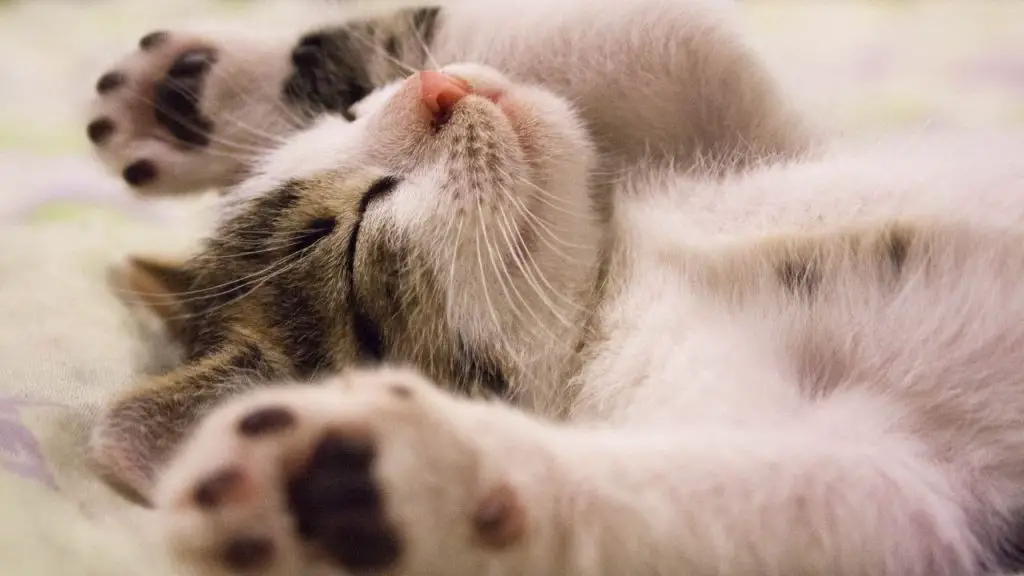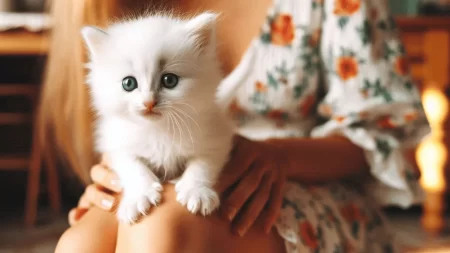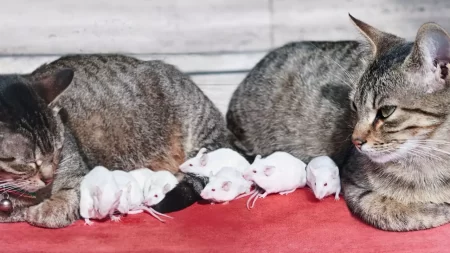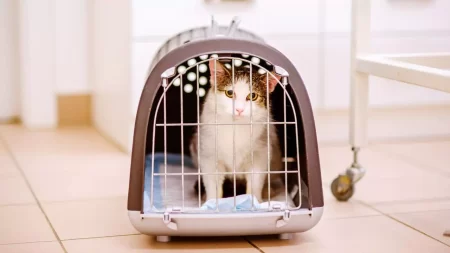It appears that the behavior of cats covering their face with their paws, also known as “tenting,” is an innate instinct that originates from their wild predecessors. This action serves to maintain their body heat and keep them warm. Additionally, it is a means for cats to protect themselves and feel safe while sleeping. On occasion, cats may cover their faces due to lethargy and opt for a more comfortable sleeping position. Therefore, if you see your feline friend snoozing with their paws or tail over their face, understand that they are merely attempting to feel secure and maintain their warmth.
What is the evolutionary reason behind cats covering their faces when sleeping?
Cats covering their faces while sleeping is an intriguing behavior. The reason behind it is linked to their instinct to protect themselves from potential dangers. Even when cats nap in a sunny spot during the day, they are still vulnerable prey animals. So, covering their eyes adds another layer of protection.
This behavior probably evolved due to cats’ natural response when in unfamiliar places. When cats feel threatened or uneasy, they cover their faces as an expression of caution and retreat. This enables them to be alert and reassured that they are secure.
Cats may also habitually cover their faces when exposed to regular loud noises or bright lights. Even when there is no specific cause of disturbance or anxiety, they instinctively shield their face.
This is a cute behavior but cat owners can provide extra comfort for their pets if needed. This can be done through calming activities, such as:
- Playing soothing music
- Giving extra blankets during naps
This can help cats snooze without the need to cover their face!
Can a cat’s sleeping position and face covering behavior reveal anything about its health or emotional state?
Do cats cover their faces when they sleep? It’s a mystery that has puzzled cat owners for years. But experts believe cats use face-covering as a self-soothing mechanism. They may be trying to feel secure while in a vulnerable state like sleep.
The intensity of face-covering behavior can tell us about your cat’s health or emotional state. If anxious, cats may curl up into a ball with all four paws covering the face. When relaxed, they may just have one paw on the head.
Understanding why cats cover their faces helps us to show them more care!
Do all cats cover their faces when they sleep, or is this behavior specific to certain breeds or individual cats?
Have you spotted cats covering their faces when they snooze? It’s not that rare! Humans and other animals do it too. But why?
The reasons why cats do this could change depending on the type of cat. It could mean feeling safe or needing comfort. It might also be a sign of being relaxed or sinking into a deep sleep.
Cats may also use physical contact to help them feel secure, like purring against a person or object. Covering the eyes or face is an extra stimulation for the senses, so they get a better rest.
The amount of time cats sleep varies by breed, with alert breeds like Siamese sleeping less than Streicher breeds. Not all cats cover their faces when they sleep; some prefer to keep their eyes open. Every cat has their own needs and preferences!
How do a cat’s environment and habitat affect its tendency to cover its face while sleeping?
Cats often cover their faces when they sleep. But why? To understand, we must look at cats’ natural habitats. In the wild, cats need to stay alert to avoid becoming prey. Covering the face minimizes visual contact with potential threats and gives them an edge in staying safe.
At home, cats cover their faces when they sleep due to habits formed over generations. It signals predators or disturbances that they are asleep and can’t see what’s happening. This is a form of protection.
The safety of a cat’s rest is impacted by its environment. A secure, comfortable area allows cats to rest without worrying about being disturbed or harmed. So, cats often choose dark spots or places to hide while sleeping, like basements or closets.In summary, cats cover their faces while sleeping to feel safe and protect themselves from predators.







